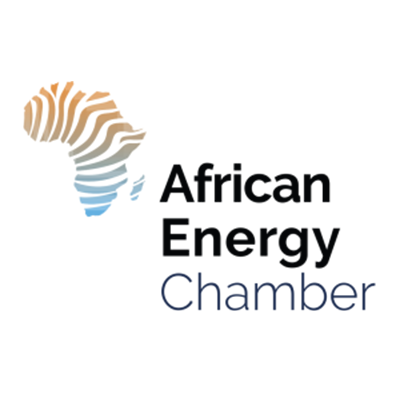OPINION: Natural Gas Is Key to a Just African Energy Transition
By NJ Ayuk
It would be an understatement to say Tanzania’s Songo Songo gas field has been good for the country and its citizens. Since 2004, the project’s output has been put to work to benefit the Tanzanian economy, its domestic energy supply, energy costs, employment numbers, and the environment.
With wells and a processing plant on Songo Songo Island, the public/private effort puts domestic needs first, using output to fuel the Ubungo gas-to-power operation as well as a major cement company and a village electrification program. Excess gas is sold to industrial customers across a range of industries.
Songo Songo production now generates about 45% of Tanzania’s electricity, reducing the need for higher-priced imported fuel. Another important benefit? When the country’s supply of hydroelectric energy wanes because of droughts, gas-to-electric generation can be counted on to fill the gap.
The development has directly created 190 jobs and made 113,809 more jobs possible.
It is also significantly decreasing carbon emissions (at the Tanzania Portland Cement Company alone, CO2 emissions have been reduced by about 80,000 tons per year) and is providing a cleaner energy source at Dar es Salaam power plants by replacing diesel and heavy fuel oil (HFO).
This project is just one example of what natural gas can do to boost African economies, workforces, energy supplies, and the health of both the environment and residents.
Because of its great potential for replicating success stories like this across the continent, I remain convinced that natural gas is the key to a prosperous future and a just energy transition for Africa.
As leaders from around the globe gather for COP28—and discussions turn to zero-emissions goals and renewable energy, I would like to respectfully point out that natural gas is clean energy. We must not, in our zeal to achieve our climate goals, dismiss the tremendous good that gas can deliver.
Natural Gas and Gas Products are Clean, Assist Emissions Targets
We’ve already seen natural gas’ positive impact on other regions of the globe. In America, for instance, natural gas is used more than any other fuel for generating both residential and industrial power, as feedstock to produce petrochemicals and fertilizers, and as a fuel of choice for generating electrical power. The U.S. uses roughly one-third of the natural gas produced globally, and demand for it there is growing.
There are good reasons for this, beginning with the fact that natural gas is the cleanest fossil fuel. It emits 50% to 60% less carbon dioxide than coal when burned and emits up to 30% less CO2 than crude oil.
If natural gas is a good option for wealthy countries like America, why shouldn’t developing nations reap the same benefits?
Gas can provide readily available, clean energy for sub-Saharan African countries while their renewable energy infrastructure and technology are “catching up” to that of wealthy, highly industrialized nations. And when supplies from renewable sources like solar and wind are intermittent (as on cloudy days and when the air is still), gas can fill the gap.
Natural Gas is Needed Domestically to Address Energy Poverty
Wealthy countries should not be attempting to set deadlines for Africa’s transition to renewables, but that is happening. Organizations from the World Bank to the European Investment Bank are pressuring Africa to quickly phase out fossil fuels. Even African lobbyists from Kenya are calling for a 30-year phase-out.
African governments and energy industry stakeholders must push back.
Investors who know Africa understand the hardships that accompany the electricity deprivation that more than two-thirds, or over 620 million, sub-Saharan Africans live with. These investors should stay the course rather than distancing themselves from African fossil fuels.
As I stated in my 2019 book, “Billions at Play: The Future of African Energy and Doing Deals,” lack of electricity is much more than inconvenient. It deprives people of modern healthcare and exposes them to toxins in their homes from primitive fuels. It prevents progress across economic segments from business to industry to education.
The picture is a dire one and is expected to get worse due to projected population growth. Residents need electricity now, and fossil fuels can give it to them much more quickly, while green energy continues to evolve and become more prevalent.
Natural gas has a critical part to play in the energy mix needed for the continent to meet its current and growing energy needs. Let’s make eliminating energy poverty a higher priority than adherence to an arbitrary, one-size-fits-all transition calendar.
Natural Gas Monetization Can Finance Energy Transitions
A just energy transition for Africa requires using our oil and gas resources as part of the process. The transition to renewables has begun, and there is more to come. In the meantime, however, Africa needs gas-to-electricity production and the monetization of its oil and gas resources. Capital from these resources can progressively fund the infrastructure and development needed to transition to renewables.
Reaching energy transition goals will require a major influx of investment capital into African economies. As one example, for Nigeria to reach the goals of its Energy Transition Plan (ETP) it will require about USD410 billion by 2060.
Overall, Africa has no shortage of natural gas reserves. A recent investment platform statistic totals them at 800 trillion cubic feet, distributed among nearly half of all African nations.
What is urgently needed are strategies to attract investment, enabling this gas to be removed from its underground and undersea reservoirs, transported, and stored. Local content will always play an important part in this process.
Creativity is also needed to provide solutions for inadequate production, transport, and storage infrastructure such as building downsized, modular LNG plants and using compressed natural gas (CNG) that shrinks methane to less than 1% of its normal volume for transport and storage.
In closing, I’ll repeat a vital point: Natural gas is increasingly in demand globally. This presents an opportunity that Africa should take advantage of now. We must monetize our natural gas resources for the good of our economies, the health of our residents, and to grow green energy initiatives at a pace that is good for Africa. This is the message I’ll be sharing during COP28 and well into the future.
. NJ Ayuk, Executive Chairman, African Energy Chamber (www.EnergyChamber.org).







